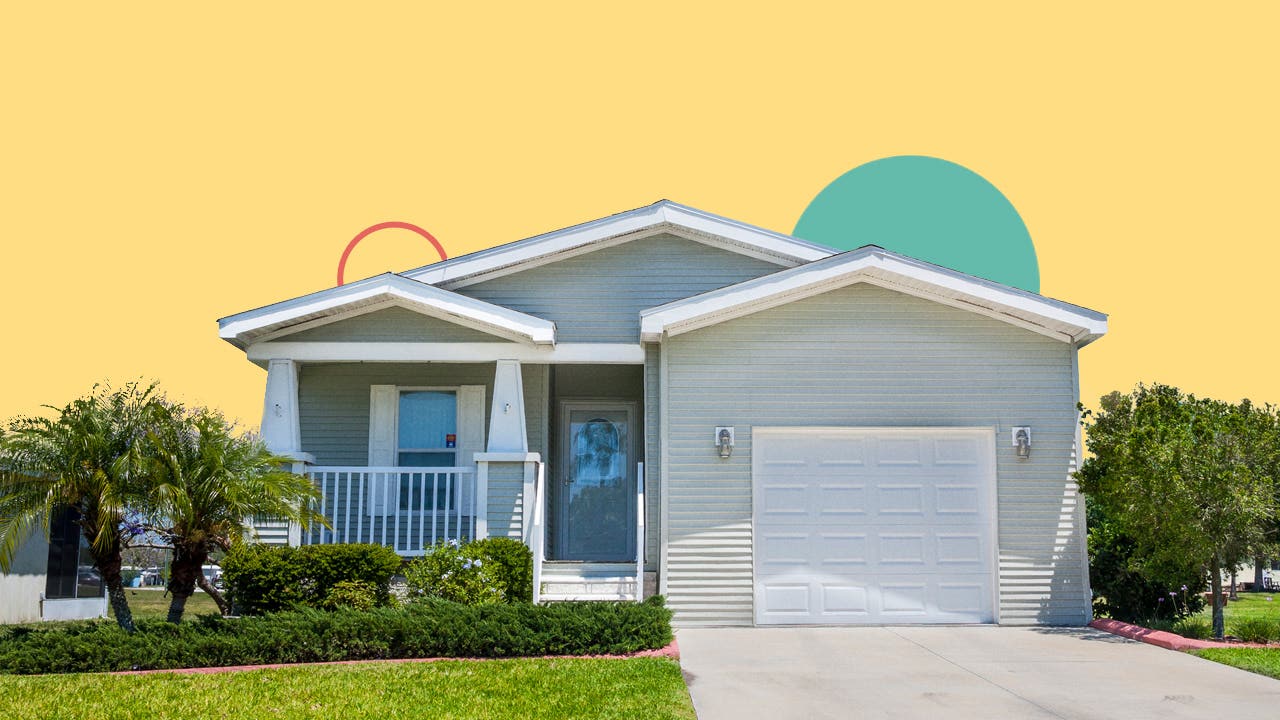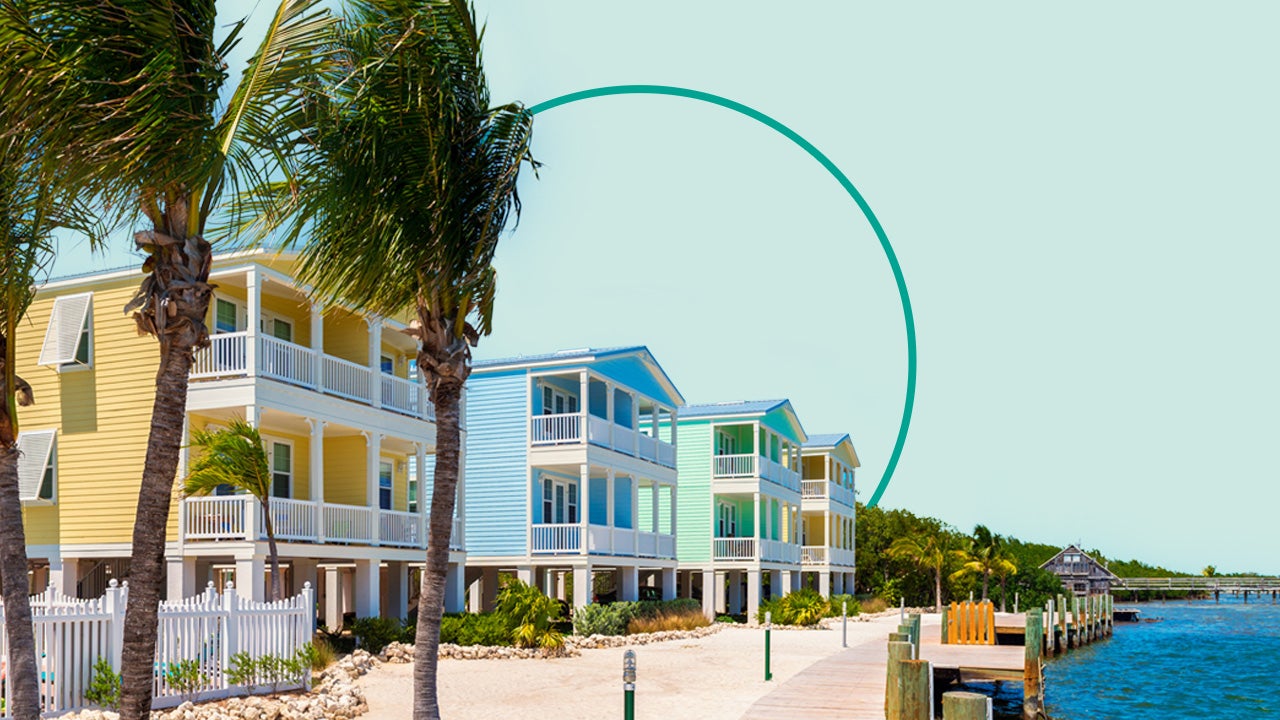Best mortgage lenders for bad credit in 2025

If your credit needs work, that doesn’t necessarily mean you won’t qualify for a mortgage. There are lenders and loan programs for borrowers with bad credit, including FHA loans. However, you’ll have your work cut out for you: During the third quarter of 2025, less than 4% of borrowers who took out loans had credit scores below 620, according to the Federal Reserve Bank of New York.Here’s our guide to the best mortgage lenders for bad credit in 2025.
Best mortgage lenders for bad credit
| Lender | Credit requirements | Down payment minimum | Bankrate Score |
|---|---|---|---|
| Veterans United Home Loans | 620 for conventional loans and VA loans | 3% for conventional loans; 3.5% for FHA loans; none for VA loans or USDA loans | 4.8 |
| Wells Fargo | 620 for conventional loans | 3% for conventional loans; 3.5% for FHA loans, none for VA loans or USDA loans | 4.9 |
| Bison State Bank | 620 for conventional loans; 580 for FHA loans and VA loans | 3% for conventional loans; 3.5% for FHA loans, none for VA loans or USDA loans | 4.7 |
| New American Funding | 620 for conventional loans | 3% for conventional loans; 3.5% for FHA loans; none for VA loans or USDA loans | 4.7 |
| Old National Bank | 620 for conventional loans | Undisclosed | 4.3 |
| Rate | 620 for conventional loans | 3% for conventional loans; 3.5% for FHA loans; none for VA loans | 4.3 |

Veterans United Home Loans
-
- Availability: All U.S. states
- Loans offered: Conventional, jumbo, FHA, VA, USDA
- Credit requirements: 620 for conventional loans and VA loans
- Down payment minimum: 3% for conventional loans; 3.5% for FHA loans; none for VA loans or USDA loans
- Where to find: Branch locations and online

Wells Fargo
-
- Availability: All U.S. states
- Loans offered: Conventional, jumbo, FHA, VA, USDA
- Credit requirements: 620 for conventional loans
- Down payment minimum: 3% for conventional loans; 3.5% for FHA loans, none for VA loans or USDA loans
- Where to find: Branch locations and online

Bison State Bank
-
- Availability: All U.S. states
- Loans offered: Conventional, jumbo, FHA, VA, USDA
- Credit requirements: 620 for conventional loans; 580 for FHA loans and VA loans
- Down payment minimum: 3% for conventional loans; 3.5% for FHA loans, none for VA loans or USDA loans
- Where to find: Branch locations and online

New American Funding
-
- Availability: All U.S. states
- Loans offered: Conventional, jumbo, FHA, VA, USDA
- Credit requirements: 620 for conventional loans
- Down payment minimum: 3% for conventional loans; 3.5% for FHA loans; none for VA loans or USDA loans
- Where to find: Branch locations and online

Old National Bank
-
- Availability: All U.S. states
- Loans offered: Conventional, jumbo, FHA, VA, USDA
- Credit requirements: 620 for conventional loans
- Down payment minimum: Undisclosed
- Where to find: Branch locations and online

Rate
-
- Availability: All U.S. states
- Loans offered: Conventional, jumbo, FHA, VA
- Credit requirements: 620 for conventional loans
- Down payment minimum: 3% for conventional loans; 3.5% for FHA loans; none for VA loans
- Where to find: Branch locations and online
How a low credit score affects your mortgage
The best interest rates go to borrowers with the strongest credit scores. If you have a lower score, you’ll be quoted higher rates, which could translate to several thousand more in interest over the life of your mortgage.
Say you’re obtaining a $380,000, 30-year mortgage with a fixed 7 percent rate. Your monthly payment would be $2,528 (excluding homeowners insurance premiums and property taxes), and you’d pay $530,134 in interest over the 30-year loan term.
If you were to improve your credit and get a lower rate of 6.5 percent instead, your monthly payment would drop to $2,402, and you’d pay $484,669 in interest for the duration of the loan. Aside from the monthly payment savings of about $125, that’s a total interest savings of approximately $45,000.
You can use Bankrate’s mortgage calculator to compare different scenarios with higher and lower rates.
How to get a mortgage with bad credit
A bad credit score doesn’t automatically mean you won’t get approved for a mortgage, but you can expect to pay more for the loan. You could also have fewer options to choose from. Follow these tips to boost your approval odds:
- Shop with lenders who specialize in mortgages for borrowers with fair or poor credit.
- Consider using a credit union or online lender, which might have more flexible loan options.
- Look into government-backed loan programs, which might have less stringent qualification criteria. FHA loans, for example, have a lower minimum credit score requirement than conventional loans.
- Ask a trusted friend or relative with excellent credit to co-sign your mortgage.
- Stop charging with credit cards and refrain from opening any new credit accounts before you apply for your mortgage, as well as during the application process.
Frequently asked questions
-
If you have poor credit, consider an FHA loan, which allows for credit scores as low as 580 (or 500 if you can make a 10 percent down payment on the home). If you’re eligible, a VA loan (for service members and veterans) or a USDA loan (for buyers in rural areas) might also be easier to qualify for. Be wary of mortgage products that tout “guaranteed approval” without a credit check, or other offers with too-good-to-be-true claims. These are most likely bad actors, and going this route can potentially do more harm to your credit.
-
The lowest credit score to qualify for a mortgage depends on the loan program and the lender. Conventional loans usually have a minimum credit score of 620, but borrowers with higher credit scores tend to nab better rates. FHA loans have a lower minimum credit score requirement than conventional loans, and might make more sense for you if your credit needs improvement.
-
There are many ways to boost your credit score. First, review your three credit reports from the credit reporting bureaus at AnnualCreditReport.com. If you spot any errors or inaccuracies, contact the reporting agency as soon as possible to dispute. Once you have your scores, create a plan of attack for debt. Likewise, be sure to pay all of your bills on time and in full, if possible. While it can be tempting to cut off access completely, close credit cards with caution — your credit score can drop if you close an account. You’re better off simply not using the card, or using it sparingly and paying it back promptly.
-
To determine the best mortgage lenders for low-credit score borrowers, Bankrate periodically evaluates more than 75 lenders for factors relating to affordability, availability and borrower experience, assigning each a Bankrate Score out of five stars. The best mortgage lenders for low-credit score borrowers generally have a Bankrate Score of 4.5 stars or higher. Learn more about our methodology.
Why we ask for feedback Your feedback helps us improve our content and services. It takes less than a minute to complete.
Your responses are anonymous and will only be used for improving our website.
You may also like

Best online mortgage lenders in 2025

Best mortgage lenders in Florida in 2025

Best FHA mortgage lenders in 2025

Best mortgage refinance lenders in 2025




